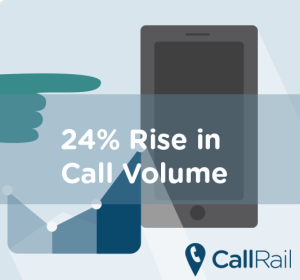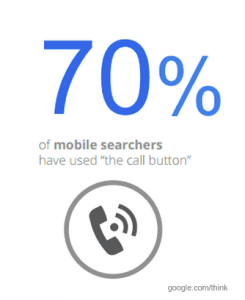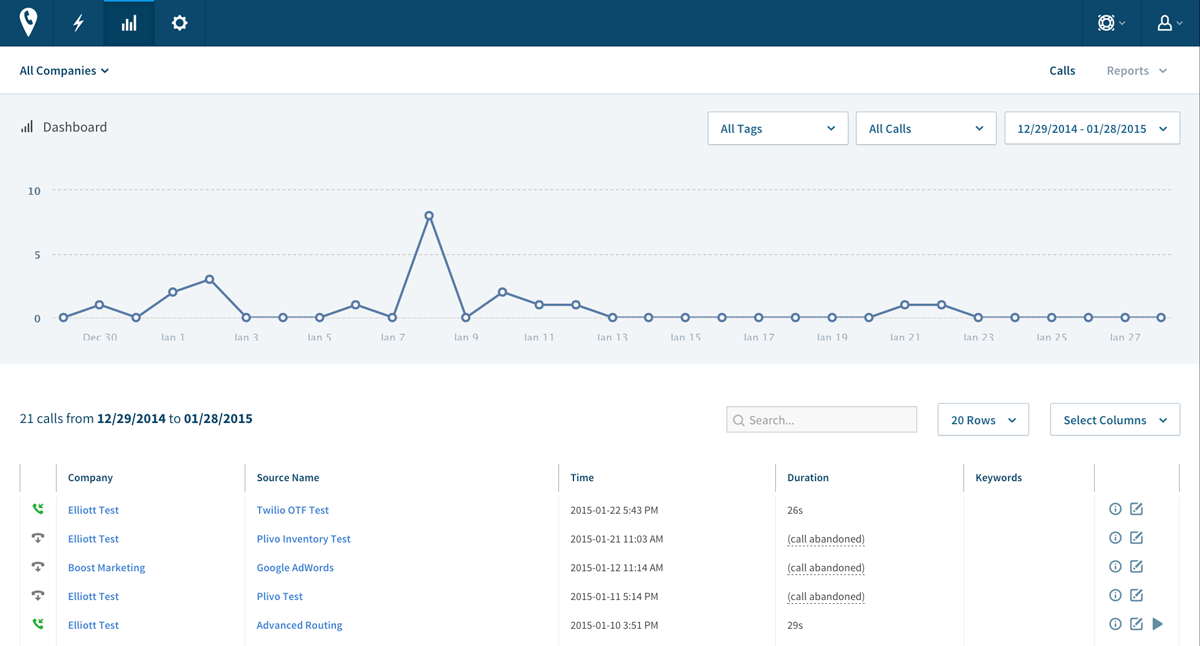
You should be tracking your inbound calls as part of your marketing strategy.
But we get it. It’s not like we don’t have a dog in this fight, and we’re not claiming to be the most unbiased of sources when it comes to the importance of tracking phone calls; however, our first hand experience, the experience of our customers, and multiple other studies are echoing the same thing when it comes to the necessity benefits of inbound phone call tracking.
If the increase in inbound call volume isn’t enough to sway you, we’ve put together 3 more reasons you should be implementing call tracking into your overall marketing strategy.
Reason 1: Upward Movement in Mobile

- 93% of people who use mobile research go on to complete a purchase.
- 70% of mobile searchers call businesses directly from search results by using “_the call button._“
Call tracking not only allows you to track the mobile research that drives phone calls, but also the phone calls themselves– allowing you to optimize your marketing campaigns with a better understanding of client behavior on the path to purchase.
Reason 2: Phone Leads Are Extremely Valuable
Consumers pick up the phone later on in their path to purchase, so unlike leads from other channels, they’re ready to buy.
- 61% of small and medium-sized businesses consider phone calls the most valuable form of incoming lead.
- 61% of mobile callers are at a point in their path to purchase where they are ready to convert.
With call tracking you can track valuable phone leads next to the leads you receive from other marketing channels (web forms, search, etc.) and get a more integrated and accurate view of what converst and what doesn’t in your marketing strategy.
Reason 3: Consumers Complete Important Purchases Offline
If you want to track the full ROI of all of your marketing channels, you need to know what happens once website visitors go offline.
- 78% of local mobile searches are completed offline.
- We recently spoke to one of our clients, Darren Carter, Principal at NYC SEM — and he let us know that this is true for him as well:
We have a company that sells a high end product, one of their best customers may spend $30,000 after developing a relationship with them, but they need to be introduced to the brand first through advertising, then they pick up the phone.
If you’re not tracking inbound calls as part of your marketing strategy, there is no way for you to trace these calls back to the online research that drove them.











